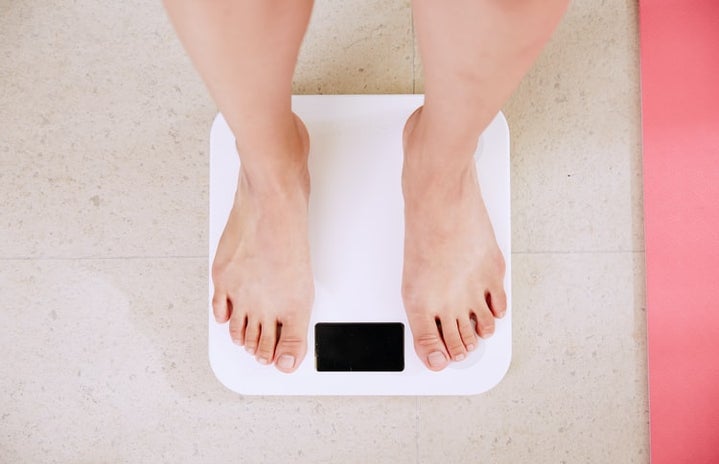“Obese”. I absolutely despise that word. Even though BMI was invented by a 19th-century mathematician while studying statistics of the general population (not an individual!) in mind, here we are in 2021, acting like whether your BMI is 29.9 or 30.0 makes a difference in whether or not you’re going to die of heart disease in the next five years (Your Fat Friend).
And whenever I hear people ramble on about the “Obesity Epidemic”, I get mad. Because my whole life, I have seen the same scenario over and over again. Someone comments on a woman’s (always a woman’s!) body. I ask them what makes them think it’s okay to objectify a woman like that. “Well, she’s obese.” That’s not a medical term. You’re reducing a woman to a number. Not once has anyone who had the audacity to call a woman fat, cared about their health. They’re uncomfortable that she doesn’t look like their unrealistic taste in women. As if women exist for their comfort in the first place. And are we just a number to them?

I had a conversation the other day. It was a painful conversation with someone who “doesn’t think the modern body positivity movement is right.” I shouldn’t have wasted my time having this conversation in the first place but my stubborn self decided to give it a try.
“What’s so bad about the body positivity movement?”
“It’s just America’s way to be comfortable with being fat. It’s related to heart disease and diabetes”. As if fat people haven’t heard that from every corner of their life.
“And gaining a bit of weight is bad?”
“Not a bit! Like someone who’s 300 or 400 pounds! You know they fucked up if they’re that big. And that’s the issue with America,” I doubt he was concerned about the 0.3% of Americans who are 400 pounds and over (Census). Or the 1.5% of Americans who are 300 pounds or over (NIH).
I doubt 1.5% of the population is the “epidemic” on everyone’s lips. And I’ve never seen anyone who rambles about the “epidemic” insult a man’s weight. But most of them comment on strangers who are women. And when someone talks about the obesity epidemic as if it’s the responsibility of a single person to fit their unique body into some sort of category based on weight, they’re refusing to look at one of the most important indicators of obesity: class.
“In 2011–2014, the prevalence of obesity was lower among women and men who were college graduates (27.8% [women], 27.9% [men]) than among women and men with some college (41.2%, 40.0%) and women and men who were high school graduates or less (45.3%, 35.5%)” (NIH).
Despite the fact that there is literally a direct correlation between education levels (which correlates to class) and obesity, no one talks about it. Because economic inequality and the wealth gap wouldn’t be as comfortable of an explanation. Someone who is singled out as obese, usually a woman, will always be seen as a woman who hasn’t fulfilled her moral duties of restricting her diet. She’s just someone who eats too much fast food and ends up being like 400 pounds (still 0.3% of the population).
And why is it that people are so adamant about obesity being so terrible? Morals. Different foods have different morals tied to them. Kale is good. Ice cream is bad. Calories are the enemy. And the less a type of food fuels your body, the more holy you are to society. Diet culture fuels these ideas but the heavy emphasis on morals, stems from racism.
“One of the things that the colonists believed was that Black people were inherently more sensuous, that people love sex and they love food, and so the idea was that Black people had more venereal diseases and that Black people were inherently obese because they lack self-control. And of course, self-control and rationality, after the Enlightenment, were characteristics that were deemed integral to Whiteness” (Mooney).
This idea that eating equals a lack of self-control pours into today’s moral weight of each item you see on a restaurant menu. It needs to stop. Colonists tried to use this flawed logic to enforce white supremacy. And why are people continuing the cultural fat-shaming in America when it was originally used to justify oppression?

So if someone tries to hurt you or anyone else for having flesh, don’t believe in them. And if you’re the one that’s been doing this? Stop.




